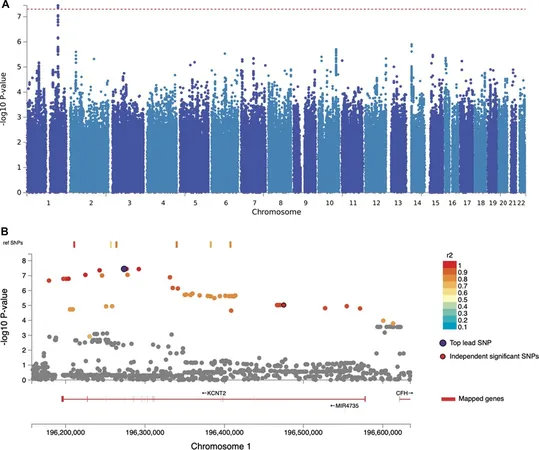
Alarming Study Reveals Impact of Recurrent UTIs on Kidney Function in Children with Vesicoureteral Reflux
2024-10-28
Author: Jia
A recent study has unveiled a concerning link between recurrent urinary tract infections (UTIs) and kidney function deterioration in children suffering from vesicoureteral reflux (VUR). Published on October 24 in JAMA Pediatrics, this critical research arrives just in time for Kidney Week, the annual congress of the American Society of Nephrology in San Diego, which runs from October 23 to 27.
Led by Dr. David S. Hains from Indiana University School of Medicine, researchers explored the changes in estimated glomerular filtration rate (eGFR) among children involved in the Randomized Intervention for Children With Vesicoureteral Reflux trial—a study aimed at examining the effects of antibiotic prophylaxis on the frequency of UTIs.
The study analyzed data from 188 participants to compare eGFR changes in children with and without recurrent UTIs. Alarmingly, the findings revealed that children who experienced more than one UTI had a significantly greater drop in eGFR—averaging a decrease of 12.3 mL/min/1.73 m². In contrast, those with no more than one UTI showed a more stable average eGFR change of 10.4 mL/min/1.73 m². Notably, among children receiving placebo treatment, repeated UTIs led to an even more drastic reduction of 19.9 mL/min/1.73 m².
Furthermore, for children with febrile UTIs, the impact was even more severe—showing a reduction of 27.1 mL/min/1.73 m² in eGFR compared to those with only one febrile UTI.
Dr. Hains and his team emphasized the potential long-term repercussions of these findings for pediatric kidney health. "Multiple UTIs may have detrimental effects on kidney function, likely manifesting as acute kidney injury (AKI) events," the authors noted, suggesting that antibiotic prophylaxis, even when not entirely effective, could mitigate the severity of breakthrough infections and preserve kidney function.
This new research sheds light on the urgent need for better management strategies for children with VUR, particularly those experiencing recurrent UTIs, as these conditions may lead to significant, lasting changes in kidney health. The implications for pediatric patients are profound and warrant immediate attention from healthcare professionals and caregivers alike.
Given the substantial risk associated with recurrent UTIs, parents should consult their healthcare providers about potential preventative measures. The path to safeguarding children's kidney function begins with awareness and proactive health strategies.



 Brasil (PT)
Brasil (PT)
 Canada (EN)
Canada (EN)
 Chile (ES)
Chile (ES)
 España (ES)
España (ES)
 France (FR)
France (FR)
 Hong Kong (EN)
Hong Kong (EN)
 Italia (IT)
Italia (IT)
 日本 (JA)
日本 (JA)
 Magyarország (HU)
Magyarország (HU)
 Norge (NO)
Norge (NO)
 Polska (PL)
Polska (PL)
 Schweiz (DE)
Schweiz (DE)
 Singapore (EN)
Singapore (EN)
 Sverige (SV)
Sverige (SV)
 Suomi (FI)
Suomi (FI)
 Türkiye (TR)
Türkiye (TR)